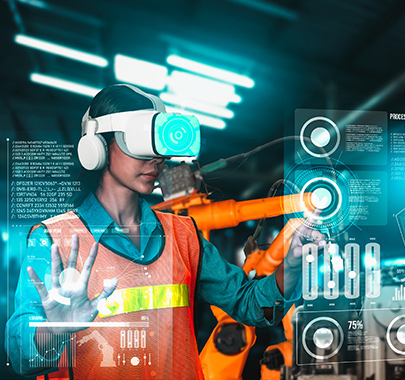Automation and Robotics: Increased use of automation, robotics, and artificial intelligence to enhance efficiency and productivity in manufacturing processes.


- Internet of Things (IoT): Integration of IoT devices and sensors to enable real-time monitoring, data collection, and predictive maintenance in manufacturing operations.
- Advanced Materials: Development and adoption of advanced materials such as composites, nanomaterials, and smart materials to improve product performance and sustainability.
- Additive Manufacturing (3D Printing): Expansion of 3D printing technologies for rapid prototyping, customized production, and on-demand manufacturing.
- Digital Twins: Implementation of digital twin technology to create virtual replicas of physical assets, enabling simulation, optimization, and predictive maintenance.
- Augmented Reality (AR) and Virtual Reality (VR): Utilization of AR and VR technologies for training, maintenance, and remote assistance in manufacturing environments.
- Supply Chain Digitization: Digitization of supply chains through blockchain, AI, and other technologies to enhance transparency, traceability, and agility.
- Sustainability and Circular Economy: Emphasis on sustainable manufacturing practices, resource efficiency, and adoption of circular economy principles to minimize waste and environmental impact.
- Mass Customization: Shift towards mass customization and flexible production systems to meet the growing demand for personalized products and services.
- Reshoring and Nearshoring: Increasing focus on reshoring or nearshoring manufacturing operations to mitigate supply chain risks and improve agility.
Source: Compilation

